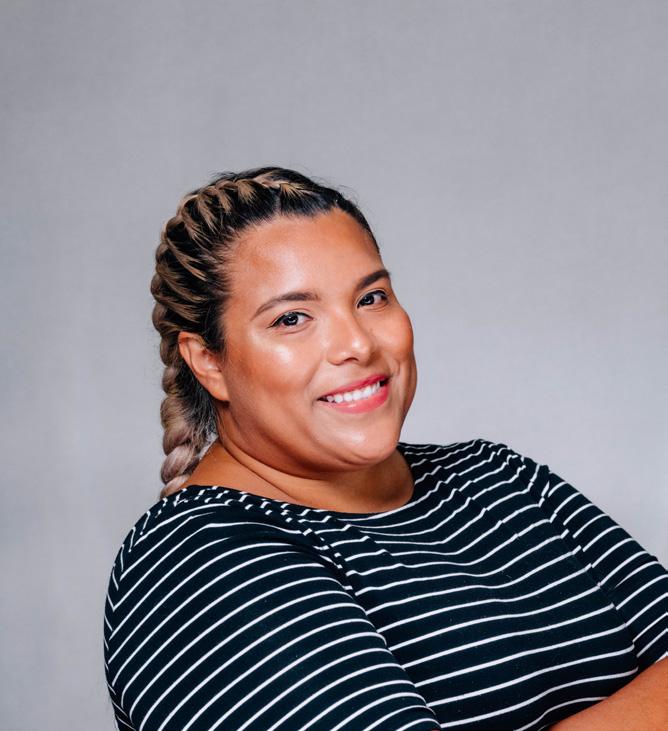
3 minute read
Ensuring Medicaid Health Coverage for CCI Patients
On March 18, 2020, the Families First Coronavirus Response Act was signed into law, providing enhanced federal funding for public programs such as Medicaid, the Children’s Health Insurance Program (CHIP), and the Supplemental Nutrition Assistance Program (SNAP). A key provision of the Families First Act included a requirement for all Medicaid/CHIP programs to keep children and families continuously enrolled through the end of the COVID-19 public health emergency (PHE). This provision provided major relief for families seeking care as they didn’t have to worry about the annual Medicaid renewal process and risk losing their health coverage at a time when so many people needed it the most.
According to KFF, it is estimated that enrollment in Medicaid/CHIP grew from 23.3 million to nearly 95 million in the three years that the public health emergency was active. However, now that the PHE has ended, states are returning to the annual renewal process and have 12 months to check if all Medicaid enrollees are still eligible for the program, a drastic procedural undertaking for Medicaid agencies.
Advertisement
In some states like Maryland, the Medicaid agency never stopped conducting the annual renewal process and encouraged enrollees to update their contact and income information each year. Yet due to confusing public messaging, many enrollees didn’t know the continuous coverage provision existed or didn’t receive mail pertaining to their coverage because their address has since changed.
According to the Maryland Department of Health’s consumer research discussions, nearly 50% of the participants indicated a change in address over the past three years and none of the participants were aware of how important the next renewal period is and that it may put them at risk of losing their health coverage.
This puts many health care organizations, like CCI, in a challenging position. As of June 2023, over seven thousand of our patients must complete the renewal process to keep their Medicaid coverage. Financially, a loss of coverage for a patient means a loss of their Medicaid reimbursement payment and this could have a large impact on our operating budget. However, as a community health center, we know how important it is for our patients to have access to the care they need and have taken several steps to ensure they keep their health coverage.
Strategic Partnerships
In February 2023, we partnered with CRISP, the statedesignated health information exchange (HIE) of Maryland, to be part of a pilot program that provided a select group of Federally Qualified Health Centers a preview of how many patients would be up for renewal of their Medicaid coverage. The program allowed us to have access to timely and accurate patient information, so our care teams can perform outreach and navigate patients through the renewal process.
Targeted Media Campaigns
In conjunction with Maryland’s official statewide Medicaid Check-In Campaign, we launched our own “Get Ready to Renew Your Medicaid Coverage” campaign to generate awareness of the upcoming renewal process and encourage our patients to update their contact information with their insurance agency to ensure they receive all communication related to their health coverage. This campaign included animated videos in English and Spanish that were shown in our waiting rooms, a detailed blog on our website, and PSAs that aired on our local radio station.
Community Events
On April 15, we partnered with four Maryland managed care organizations and the state’s insurance administration to host a Medicaid Health Fair to inform community members about the Medicaid renewal process. At the Fair, families could talk to any one of the insurance agencies about how to update their contact information or schedule an appointment with one of our ACA navigators for one-on-one assistance. Since then, we continue to alert the community about the renewal process through our marketing materials shared at events.
A Special Story
Back in April, we had a 20-year-old patient without insurance that came into a CCI health center for the first time. She previously had a kidney transplant and needed to get a catheter removed. At the time, I was the Referral Specialist at our Greenway location, as my role as an ACA Navigator had not started yet.
As her Referral Specialist, I started to look for resources through other organizations, but their wait times were too long. The patient mentioned that her mom was already paying out of pocket for her to see a nephrologist. As I sat with them, I asked a couple of questions to find out if she could be eligible for any assistance getting health insurance, and to my surprise, she said she had entered the country through the refugee program a couple of years ago. This made her eligible for Medicaid.
I then proceeded to guide her through the application process with Maryland Health Connection, where she was approved for Medicaid. The patient and her mother were very grateful for my help.
This is a very special story for me because I was able to help this young girl who at a very young age had already been through a kidney transplant and was struggling to get the care that she needed due to financial matters.










